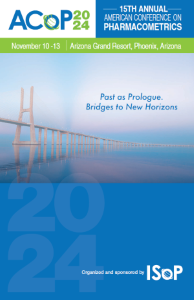Harnessing Efficiency in Quantitative Systems Pharmacology (QSP) Modeling: Integrating Workflows, Automation, and Visualization Tools for Enhanced Cross-Functional Communication
Thales: A unified framework for clinical-scale QSP modeling
Monday, November 11, 2024
3:55 PM – 4:15 PM MST
Location: Kaibab & Lantana

Ryan Suderman, PhD (he/him/his)
Associate Director/Sr. Principal Scientist
Simulations Plus, Inc.
Westerville, Ohio, United StatesDisclosure(s): No financial relationships to disclose
Speaker(s)
Disclosure(s):
Ryan Suderman, NA: No financial relationships to disclose
A fundamental aspect of QSP modeling is the formal representation of mechanisms describing a core set of physiological processes to be perturbed by therapeutic intervention. From this core model, a virtual population is often created by sampling distinct parameter sets and then used to simulate clinical trials in the hope of ultimately informing clinical trial design. Currently within the field of QSP, numerous methods exist to build, simulate, optimize, and analyze virtual populations. By leveraging the past 20 years of QSP model building experience, Simulations Plus has developed Thales, a QSP modeling platform that instills standardized approaches both to the development of models and the fitting and validation of virtual populations with an emphasis on supporting clinical development. In this talk, we will highlight core features of Thales that improve efficiency of model development and simulation and introduce a new GUI that tames some of the complexity common to these models. Among these features are high-level, modular objects and universal methods reusable across disease indications, which enables development focused specifically on biological and clinical details and facilitates rapid exchange of knowledge between modelers, biologists, and clinicians. Our experience in both building and using Thales has demonstrated the benefits of standardization in the user interface as well as with the development process itself.

